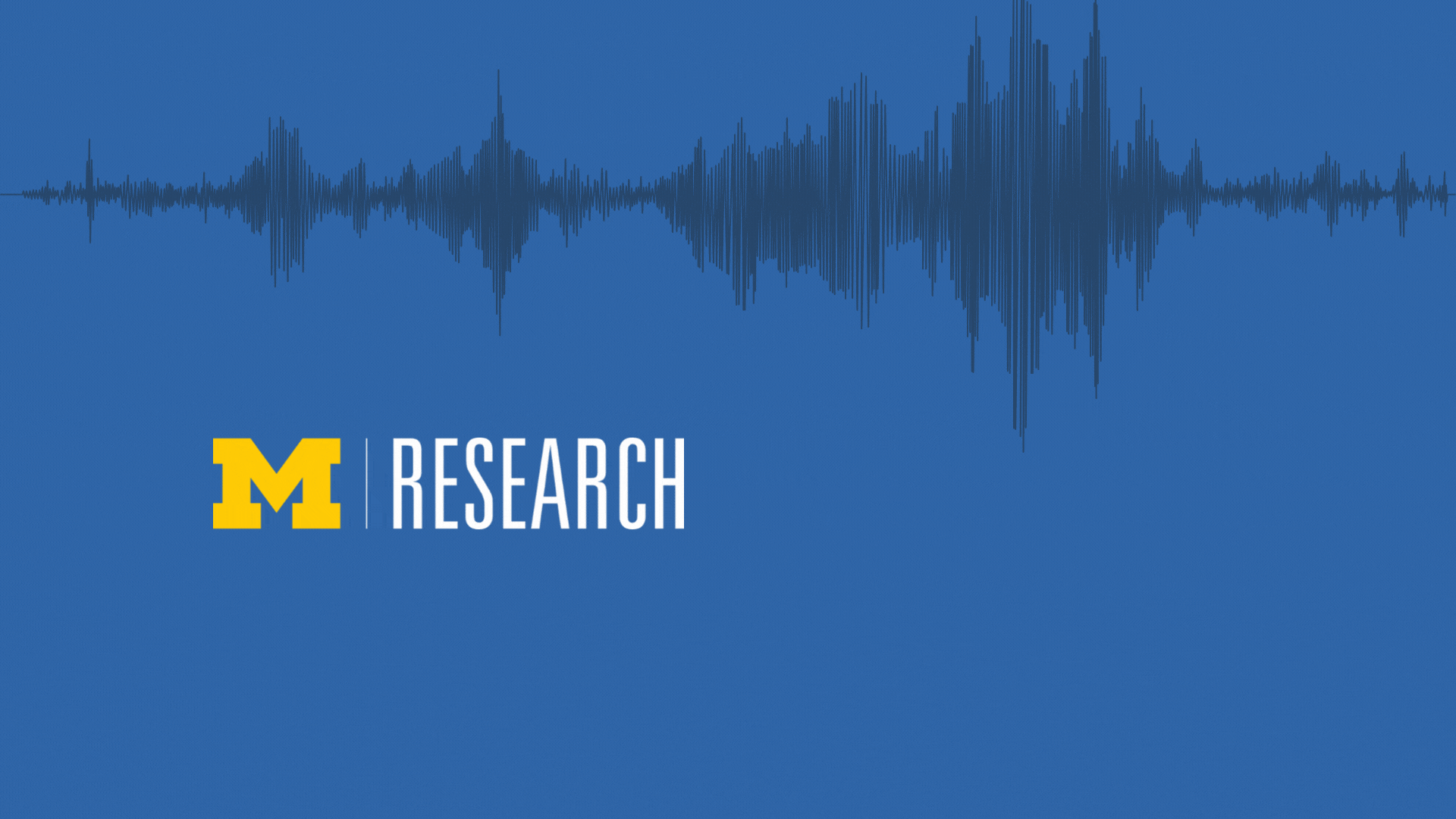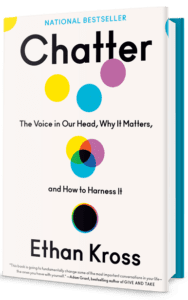Office of the Vice President for Research
Michigan Research
Michigan Research is a monthly e-newsletter produced by the Office of the Vice President for Research that aims to increase awareness of the impact and importance of U-M research and scholarship. Michigan Research is sent to faculty and staff across the three U-M campuses, along with select external audiences.
In This Edition:
- LEAD STORY: Anonymous tip line flags thousands of firearm threats in schools
- OVPR, Arts Initiative Award funding to seven teams
- $15M to fund U-M, Los Alamos National Laboratory Collaboration
- The Reverb Effect: “Does it matter” Legacies of the First World War
- Why I Research featuring award-winning psychology professor, Ethan Kross
- In Perspective: How cannabis and psilocybin might help some of the 50 million Americans who are experiencing chronic pain
- Top stories from OVPR social media channels
Latest Research Story
Anonymous tip line flags thousands of firearm threats in schools
A look at one state’s use of Sandy Hook Promise’s Say Something Anonymous Reporting System, which provides K-12 students a way to confidentially report concerning behaviors, found that youth submitted thousands of tips each year on firearm-related risks.
The study, led by researchers from the University of Michigan’s Institute for Firearm Injury Prevention in partnership with Sandy Hook Promise, analyzed the Say Something Anonymous Reporting System in North Carolina, which serves 103 school districts and 156 charter schools, and pulled data from more than 18,000 unique tips made through the system.
According to the study, published in the journal Pediatrics, 1 in 10 tips submitted involved firearm-related threats. Of the total gun-related tips reported between 2019-2023, 51% were classified as life-threatening—five times greater than the proportion of tips not related to firearms—eliciting response from EMS and/or policing systems.
Once tips are reported, they are classified as nonlife-threatening or life-threatening by the accredited National Crisis Center, a key part of the Say Something Anonymous Reporting System.
Tips that referenced firearms include potential school shootings (38%), seeing or knowing of a weapon (22%), intent for interpersonal violence (9%), bullying or cyberbullying (3%), and suicide (3%).
“The urgency of firearm-related tips highlights the need to educate families on firearm violence prevention, and ensure support and response protocols for school systems,” said Elyse Thulin, lead author of the study and research assistant professor at the Institute for Firearm Injury Prevention and adjunct lecturer at the U-M School of Public Health.
Firearm-related injuries are the leading cause of death among children and adolescents in the United States, and the findings of the study show that youth can play a valuable role in alerting and averting firearms threats.
More than 50% of K-12 schools in the U.S. use anonymous reporting systems to decrease the burden of firearm injuries, according to the study.
Versions of anonymous reporting systems like Say Something are developed to leverage the “see-something-say-something” model, which seeks to increase citizen awareness and empowerment to report potentially dangerous items, events and behaviors, the researchers say.
“Greater awareness of anonymous reporting systems among public health and medical personnel could create opportunities for additional services and support for adolescents and remove some of the burden from families and school systems in responding to these often-life-threatening situations,” according to the researchers.
Additional study authors include: Justin Heinze and Elizabeth Messman, Department of Health Behavior and Health Education, U-M School of Public Health; and Alex French and Rachel Masi, Sandy Hook Promise Foundation.

I’m one human being but if we can create systems that are going to help empower future generations to create a safer world that’s meaningful.
During the study, the anonymous reporting system reported:
Confirmed Mental Health Interventions
"Saves" where clear evidence of imminent suicide crisis was present and averted
Act of school-violence including weapons recovered on school grounds
Confirmed planned school attacks averted
related content
- Study: Firearm-Related Tips in a Statewide School Anonymous Reporting System
- Elyse Thulin, PhD
Research Assistant Professor, Institute for Firearm Injury Prevention - Justin Heinze, PhD
Associate Professor, Health Behavior and Health Education, School of Public Health - Institute for Firearm Injury Prevention Website
- Say Something Anonymous Reporting System Website
- Sandy Hook Promise Website
you may also like this from OVPR
OVPR, Arts Initiative award funding to seven teams
By Wendy Sutton
Office of the Vice President for Research
The Arts Research: Incubation & Acceleration grant program has awarded its second round of funding to seven arts-based research projects, led by teams representing nine schools across the University of Michigan campuses in Ann Arbor and Dearborn.
$15M to fund U-M, Los Alamos National Laboratory collaboration
Artificial intelligence and scientific computing play a critical role in helping researchers address some of the world’s most complex challenges—from finding solutions to environmental challenges and developing solutions that combat climate change to modeling the spread of infectious diseases.
With a new five-year, $15 million award from the U.S. Department of Energy’s Los Alamos National Laboratory, the University of Michigan will partner with the New Mexico-based laboratory to develop advanced computing technologies—including artificial intelligence and increasingly sophisticated modeling techniques—to address critical challenges. Efficiently characterizing the behavior of turbulent plasma, for example, is a key to unlocking the potential of fusion as a limitless source of clean energy and to understanding fundamental phenomena that describe the evolution of stars.
The Reverb Effect:

“Does It Matter?”
Legacies of the First World War
Nationalism. Emerging technology. Militarization. Destroyed bodies. Total war. In this episode, three historians reconsider the dominant themes of the First World War—which are as relevant today as they were a century ago.
Why I Research
Real Researchers.
Real Results!

Ethan Kross
Ethan Kross is one of the world’s leading experts on controlling the conscious mind. An award-winning professor in the University of Michigan’s top ranked Psychology Department and its Ross School of Business, he is the director of the Emotion & Self Control Laboratory.
Kross’s groundbreaking book, Chatter: The Voice in Our Head, Why It Matters, and How to Harness It, offers a deep dive into the science of introspection, revealing how to harness the power of the inner voice for self-enhancement. By merging cutting-edge research with real-world applicability, Kross provides readers with actionable strategies to master their inner dialogues, transforming the way we live, work, and interact with others.

An interview with Dr. Ethan Kross
Ethan has participated in policy discussion at the White House and has been interviewed about his research on CBS Evening News, Good Morning America, Anderson Cooper Full Circle, and NPR’s Morning Edition. His research has been featured in The New York Times, The Wall Street Journal, The New Yorker, The New England Journal of Medicine, and Science.

How cannabis and psilocybin might help some of the 50 million Americans who are experiencing chronic pain
In an eye-opening article featured in The Conversation, Kevin Boehnke, an assistant professor of anesthesiology, delves into the transformative potential of cannabis and psilocybin for chronic pain management. Highlighting recent DEA regulatory shifts that align with his research and personal journey with fibromyalgia, Boehnke examines the historic and emerging uses of these substances. From ancient pain relief methods to contemporary science, he advocates for rigorous research to tackle the challenges and harness the therapeutic possibilities for the millions of Americans living with chronic pain. His work exemplifies the University’s ongoing efforts to bridge the gap between traditional approaches and innovative treatment modalities.

TOP STORIES – OVPR SOCIAL CHANNELS
It’s easier now to treat opioid addiction with medication -- but use has changed little
Abrupt policy shift removed barrier to prescribing buprenorphine, but didn’t lead to a sharp rise in prescribing by the end of the first year.
Written by Kara Gavin, Research and Policy Media Relations Manager for Michigan Medicine.
Read the article
Better battery manufacturing: Robotic lab vets new reaction design strategy
Mixing unconventional ingredients in just the right order can make complex materials with fewer impurities. The robotic lab that tested the idea could be widely adopted.
Written by Kate McAlpine, Research News Editor for Michigan Engineering
Read the article
Women caregivers are stressed: Transportation infrastructure could help
Supporting independent travel for children, older adults and people with disabilities could give working women a break.
Written by Patricia DeLacey, U-M Medical School
Read the article
Check out OVPR on social:
Back to Top